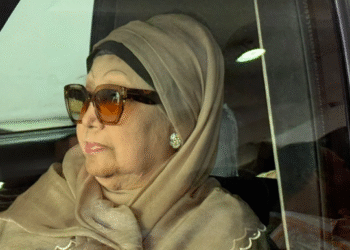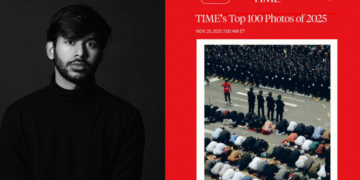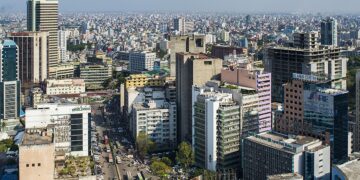Highlights
- Refugees claim India tied their hands, covered their faces, and abandoned them in the sea.
- 40 Rohingya refugees, including women and children, were deported from Delhi in May.
- Survivors now stuck in Myanmar’s conflict zone with uncertain future.
- UN Rapporteur says there is “significant evidence” against India.
- Indian government has not responded to BBC or UN inquiries.
A Brother’s Painful Last Call
On May 9, Nurul Amin spoke to his brother for the last time. The short phone call carried devastating news: his brother Kayrul, along with four other family members, was among 40 Rohingya refugees deported by the Indian government.
These refugees had fled Myanmar years ago to escape violence but were now forced back into danger, in the middle of Myanmar’s ongoing civil war.
“আমি মানতেই পারি না যে আমার মা–বাবা ও যাঁদের বিতাড়ন করা হয়েছে, তাঁরা কী কষ্টে আছেন।”
Translation: “I cannot even imagine the suffering of my parents and those who were deported,” said 24-year-old Nurul from Delhi.
Life Back in Myanmar’s War Zone
Three months later, BBC managed to contact the deported refugees inside Myanmar. Many are now living with the “Ba Htu Army (BHA)”, a resistance group fighting the military junta in the southwest.
One Rohingya Refugees, Syed Nur, spoke via video call from a wooden shelter:
“আমরা মিয়ানমারে নিরাপদ বোধ করি না। এখানে পুরো এলাকা যুদ্ধক্ষেত্রের মতো।”
Translation: “We do not feel safe in Myanmar. The entire area feels like a war zone.”
Read More: Mastermind of ‘Oggyan Party’ Faints After Drinking His Own Juice
“Taken Like Prisoners, Thrown into the Sea”
The refugees described being taken from Delhi under the pretext of biometric checks. They were later moved to detention centers, then flown to the Andaman Islands.
One refugee told his brother on the phone:
“তারা (ভারতীয় কর্তৃপক্ষ) আমাদের হাত বেঁধে, মুখ ঢেকে বন্দীদের মতো করে নিয়ে গেছে। তারপর (নৌকায় উঠিয়ে) সমুদ্রে ফেলে দিয়েছে।”
Translation: “They tied our hands, covered our faces, took us like prisoners, and then threw us into the sea.”
Journey Through Fear and Abuse
-
Refugees were bound with plastic ties and blindfolded.
-
Taken on a large warship for 14 hours before being moved to small rubber boats.
-
Given life jackets, then forced to jump into the sea near the Myanmar coast.
-
Some were beaten, slapped, and insulted during the process.
Faizullah, another refugee, showed injuries on his arm during a video call:
“They kept asking why I was in India illegally and beat me with sticks.”
Others reported being mocked for their religion:
“They asked why we were not Hindus and mocked us for being Christians or Muslims.”
India’s Silence, UN’s Concern
The UN Special Rapporteur on Human Rights in Myanmar, Thomas Andrews, confirmed that there is “significant evidence” of India’s actions and presented it in Geneva. So far, India has not replied.
BBC also repeatedly contacted India’s Ministry of External Affairs but received no response.
Families Living in Fear
Nurul Amin, still in Delhi, filed a petition in India’s Supreme Court demanding:
- The return of the 40 deported refugees,
- An end to forced deportations, and
- Compensation for victims.
But one Supreme Court judge dismissed the claim, calling it “imaginary.”
“মানুষকে কীভাবে শুধু সমুদ্রে ফেলা যায়? বিশ্বে মানবিকতা বেঁচে আছে, কিন্তু আমি ভারত সরকারের মধ্যে কোনো মানবিকতা দেখিনি।”
Translation: “How can anyone throw people into the sea? Humanity exists in the world, but I have seen none in the Indian government,” said Nurul Amin.
Now, many Rohingya in India live in hiding, fearing they will be the next to be deported.
The Bigger Picture
- India does not officially recognize Rohingyas as refugees; instead, they are labeled “illegal immigrants” under the Foreigners Act.
- UNHCR has 23,800 registered Rohingya refugees in India, but Human Rights Watch believes the real number is over 40,000.
- Meanwhile, Bangladesh hosts more than 1 million Rohingyas, mostly fleeing the 2017 Myanmar military crackdown.
Source: BBC

















